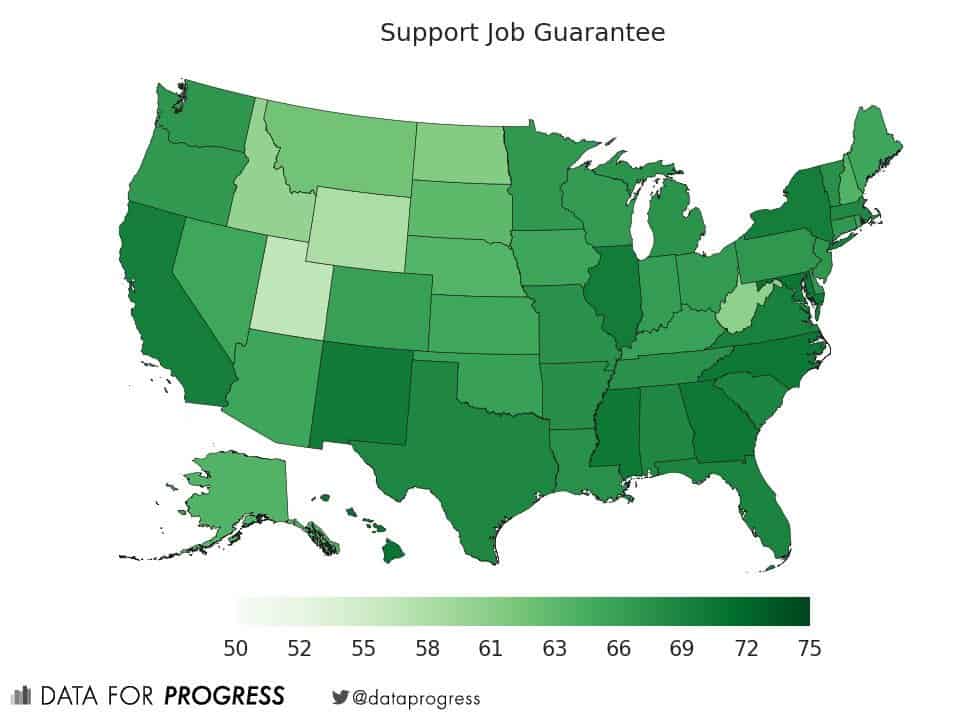Funding for progressive groups — from economic think-tanks to immigrants’ rights advocates and Democratic campaigns — is in jeopardy following Supreme Court’s Janus decision, which will cost public sector unions an estimated tens of millions in revenue. The New York Times reported on the fallout yesterday, noting that major unions like SEIU have already scaled back their budget dramatically in anticipation of the decision. Progressive groups note that funding cuts stemming from Janus are not an existential threat, but nonetheless pose a significant constraint for a wide range of advocates for working-class people. Public-sector unions may also have to scale back spending on ballot-measures and Democratic candidates. Democrats might be right to fear Janus’ political spillover effects: a recent paper found that right-to-work laws decreased Democratic presidential vote share by 3.5 percent. Commenters from across the ideological spectrum — from Donald Trump to Professor Sachs — agree that depriving Democrats of campaign funds was Janus’ true purpose in the first place.
Democratic Socialist Alexandria Ocasio-Cortez’ stunning victory in a New York Congressional primary is reinvigorating recent debate within the Democratic Party about a federal jobs guarantee, which was a key part of her groundbreaking policy platform. Left-wing advocates see Ocasio-Cortez’ primary win as a vindication that working class voters want bold, left-wing proposals from Democrats (the Bronx and Queens district has one of the highest percentages of service-sector workers of Congressional districts across the country). Others have argued that Ocasio-Cortez’ policies will be too far left for voters in the Midwest. But Eric Levitz points out in New York that this conventional wisdom is at odds with promising polling: data from the Center for American Progress, an influential thinktank closely associated with the Democratic Party, shows that a “supermajority” of voters support federal jobs guarantee. Analysis from the left-wing Data for Progress finds support for CAP’s proposal among 67 percent of voters in rural zip codes.

New York City is taking unprecedented steps to raise wages for Uber and Lyft drivers, proposing a first-of-their-kind regulations that would establish a base wage of $17.22 per hour. Under the proposal, if drivers earnings fall below $17.22 per hour over the course of a week, the companies would be required to make up the difference; if they exceed $17.22 per hour, drivers would keep the premium. As Vail wrote yesterday, the City’s Taxi and Limousine Commission released a report analyzing a report analyzing the need to protect ride-sharing app drivers’ wages, finding that the median net hourly earnings in the industry were about $14.25 per hour. A disturbing spate of suicides by professional drivers recently drew attention to the acute economic precariousness ride-hail drivers face; despite working long hours, nearly a fifth of New York drivers for companies like Uber and Lyft earn so little they qualify for food stamps.
Apprehension is growing among progressives and workers’ rights advocates as Donald Trump prepares to name his nominee to replace Justice Anthony Kennedy on the Supreme Court. At the Times, Professor Jedediah Purdy argues that the new nominee will likely pose a serious threat to unions, workers’ rights, and legislative efforts to address economic equality. Purdy argues that recent cases, including Epic Systems and NFIB v. Sebelius, are part of a historical arc aimed at “dismantling the legal legacy of the New Deal,” essentially warning of a new Lochner era.
If that happens, it may well be because of conservatives “weaponizing the First Amendment” as Justice Kagan recently warned. That makes Professor Charlotte Garden’s new series at Take Care on the dergulatory First Amendment all the more essential. Check out the first post here.






Daily News & Commentary
Start your day with our roundup of the latest labor developments. See all
December 22
Worker-friendly legislation enacted in New York; UW Professor wins free speech case; Trucking company ordered to pay $23 million to Teamsters.
December 21
Argentine unions march against labor law reform; WNBA players vote to authorize a strike; and the NLRB prepares to clear its backlog.
December 19
Labor law professors file an amici curiae and the NLRB regains quorum.
December 18
New Jersey adopts disparate impact rules; Teamsters oppose railroad merger; court pauses more shutdown layoffs.
December 17
The TSA suspends a labor union representing 47,000 officers for a second time; the Trump administration seeks to recruit over 1,000 artificial intelligence experts to the federal workforce; and the New York Times reports on the tumultuous changes that U.S. labor relations has seen over the past year.
December 16
Second Circuit affirms dismissal of former collegiate athletes’ antitrust suit; UPS will invest $120 million in truck-unloading robots; Sharon Block argues there are reasons for optimism about labor’s future.